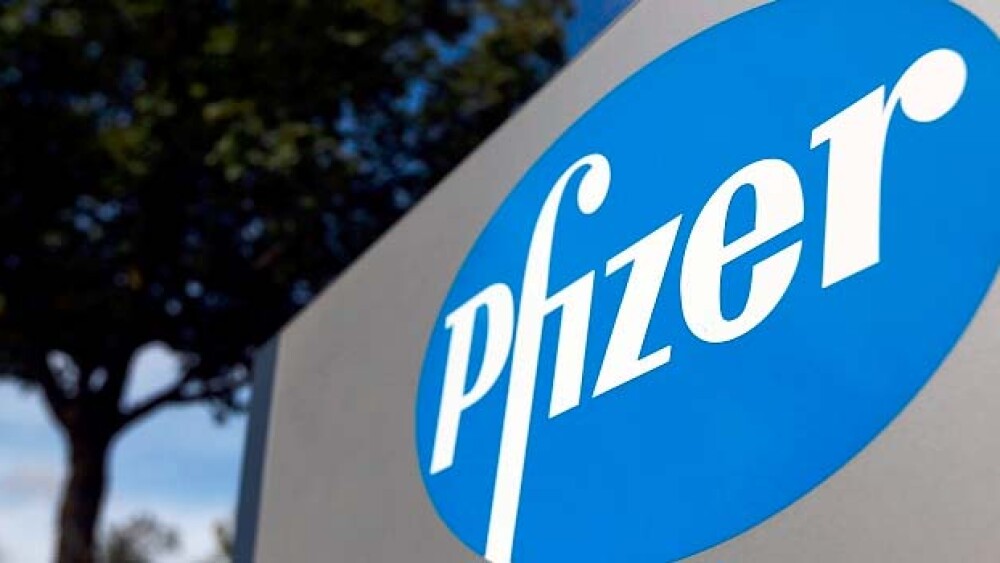The trial, B7451012, evaluated abrocitinib as a monotherapy for 12 weeks. The top-line data indicated that by week 12 the proportion of patients who hit each co-primary efficacy endpoint and each key secondary endpoint with either dose, 100 mg or 200 mg, were statistically significantly higher than placebo.
Pfizer announced that its abrocitinib had positive top-line results in its Phase III trial in severe atopic dermatitis (AD).
The trial, B7451012, evaluated abrocitinib as a monotherapy for 12 weeks. The top-line data indicated that by week 12 the proportion of patients who hit each co-primary efficacy endpoint and each key secondary endpoint with either dose, 100 mg or 200 mg, were statistically significantly higher than placebo.
The co-primary endpoints were the percentage of patients who hit an Investigator Global Assessment (IGA) score of clear (0) or almost clear (1) skin and greater than or equal to 2-point improvement. The second co-primary endpoint was a proportion of patients who hit at least a 75% or greater change from baseline in their Eczema Area and Severity Index (EASI) score.
Key secondary endpoints were a proportion of patients having a 4-point or larger decrease in itch severity and the magnitude of decrease in the Pruritus and Symptoms Assessment for Atopic Dermatitis (PSAAD).
“Moderate to severe atopic dermatitis is a chronic, inflammatory skin disease that can take both a physical and emotional toll on the millions of patients living with the condition worldwide,” stated Michael Corbo, chief development officer, Inflammation & Immunology, Pfizer Global Product Development. “These top-line findings are encouraging and provide evidence that abrocitinib, if approved, could be an effective new oral once-daily treatment option for patients.”
Abrocitinib inhibits Janus kinase (JAK) 1. This is believed to modulate multiple cytokines involved in AD including interleukin (IL)-4, IL-13, IL-31, and interferon gamma.
The U.S. Food and Drug Administration (FDA) granted abrocitinib Breakthrough Therapy designation for patients with moderate to severe AD in February 2018.
The trial evaluated 387 patients ages 12 years and older. They were split into three groups who received abrocitinib 200 mg, abrocitinib 100 mg, and a placebo. Patients who completed the 12-week study had the option of entering a long-term extension (LTE) trial, B7451015. Patients who discontinued the treatment, or who weren’t eligible for the LTE study, were followed for 4 weeks.
JAK pathways are linked to inflammatory processes and are implicated in signaling for over 50 cytokines and growth factors. In addition to AD, Pfizer is evaluating various other JAK inhibitors, including PF-06700841 for psoriasis, Crohn’s disease, ulcerative colitis, vitiligo, and alopecia areata; PF-06650833 for rheumatoid arthritis; PF-06826647 for inflammatory bowel disease; and PF-06651600 for alopecia areata, vitiligo, rheumatoid arthritis, Crohn’s disease, and ulcerative colitis.
Pfizer indicates it will present additional efficacy and safety data on B7451012 at a future scientific meeting and publish the results in a prominent medical journal. It is part of the company’s JAK1 Atopic Dermatitis Efficacy and Safety (JADE) global development program. It plans additional data from another trial in the JADE program later this year.
Atopic dermatitis is a chronic skin disease marked by inflammation of the skin and skin barrier defects. The lesions are characterized by redness, itching, hardening and formulation of papules, and oozing and crusting. It affects 1% to 3% of adults and 15% to 20% of adults globally. About half of pediatric AD patients around the world have recurring symptoms into adolescence and adulthood.





